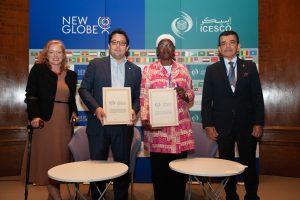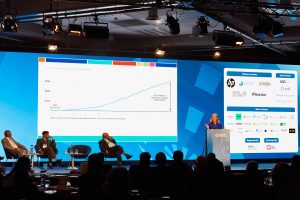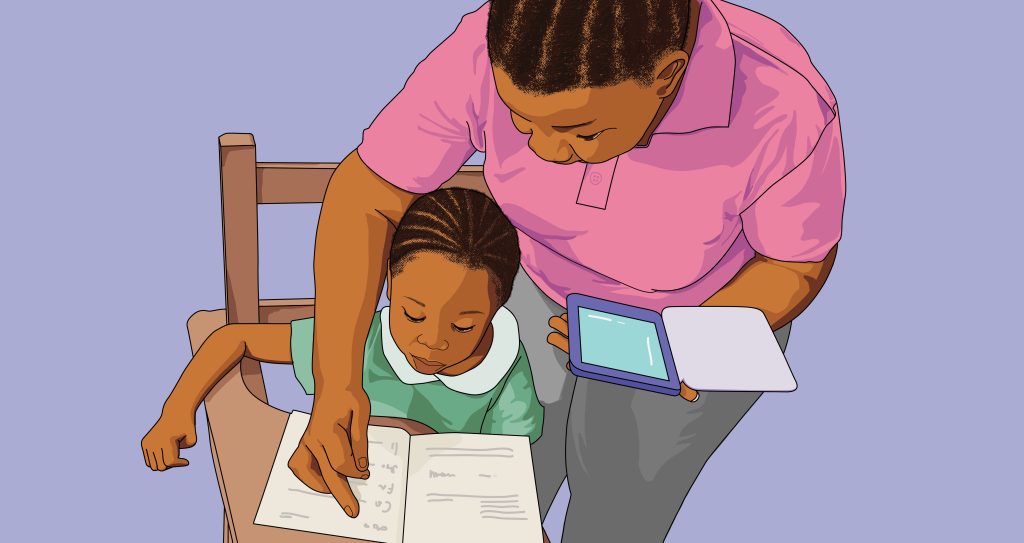Why EDOBEST sets the example to follow in Nigeria’s push towards better basic education services.
Why EDOBEST sets the example to follow in Nigeria’s push towards better basic education services.
- By Dr. Hamid Bobboyi, Executive Secretary of the Universal Education Commission Board (UBEC).
Universal Basic Education is the foundation of all that we do. It guarantees how far we can get our children to be responsible citizens and how far we can equip and skill them to help them scale through other spheres of our educational system, making sure that they build themselves and subsequently the country. Nigeria has the largest basic education sector in the world with about 42 million kids in primary school. Anybody trying to oversee this system must be in a position to mobilize the stakeholders – the parents, the traditional institutions, the education services providers in different states – to be on the same page in making sure we do not disappoint the Nigerian child.
The bottom line is Nigeria is not spending enough on basic education. We must ask ourselves: How do we mobilize resources? How do we provide more resources at the federal level and at the state level? In our constitution, basic education is a local government and state affair, but UBEC as an agency is making an effort to support state and local governments, because we feel that it is our responsibility not only to provide basic education but it is also our responsibility to sustain and develop Nigeria.
In the 21st Century, we have to come to the realization that our success is dependent on the level at which we can incorporate technology in whatever we do. It’s not something that we have to now sit down and start asking ourselves whether it is appropriate or not. We must incorporate information and communication technology into what we do at the basic education level now. At the level of UBEC we had to look at it critically. First and foremost it is about digital literacy. If we can train our teachers to understand the use of IT, we can give them the resources.
This can be things like computer laboratories, because this is a basic place where people can understand the technology, so that the children can also be familiar with these gadgets. At the moment, we have an e-learning programme where we are establishing and connecting schools. We have hubs in every senatorial district in the country and we hope that very soon we will have connectivity through v-sat and other mediums.
This is a paradigm change where now our children can come into a school and begin learning using these digital platforms from day one from nursery, primary and junior secondary school. Our hope is that this platform can help us to provide the necessary support that our children need to prepare them to compete effectively, not only with children in Nigeria, but with their peers in other parts of the world.
One of the greatest examples of technology integration already in Nigeria is the EdoBEST programme. To understand what lessons other states can learn from the EdoBEST programme and its adoption of technology, it is important to first realize why we needed EdoBEST. When Governor Godwin Obaseki invited me to be part of the strategic planning sessions he was organizing in 2017, basic education in Edo State was in very dire straits. There were problems of dilapidated classrooms, teacher absenteeism, and parents that were not supporting schools.
Mr Obaseki realized that something must change and made a conscious effort to invest in basic education and create a paradigm shift to put Edo back on its own trail of development. EdoBEST came up with very specific objectives in terms of how you firstly ensure that you have the content that could be used in the classroom – given that one of the key issues with the basic education sector is with instructional materials. EdoBEST developed a system whereby the teacher is trained, given a tablet, and that tablet has all the materials required through EdoBEST. It’s a revolution.
You can keep on buying textbooks and so on and so forth but here you have all the lesson notes and every morning the lessons are sent to the teacher directly so he or she can go through it and understand it. The tablet records what goes on in the school and within the classroom, so if the tablet has not been used it will be recorded in the server. The teacher becomes a kind of facilitator that can make a difference in teaching and learning. EdoBEST ensures that teachers can perform in the classroom and they can be monitored while doing that. This is something that every SUBEB should emulate.
In the future we envision smart schools as being the backbone of e-learning in Nigeria. There will be seven zonal models, for every geopolitical zone, and then in those will be the state smart schools. I visited Abudu Smart School in Edo State, which is the South-south zonal model. Abudu Smart School belongs to Edo State and from there you have a training facility that can be used by teachers from the other states in the South-south zonal model.
Our hope is that the Smart School in Abudu will have all the biggest training facilities that you require for that kind of teacher training – smart boards, a tablet for every child, the entire building wired with fiber optics, and full internet access. It will be a basic education center with nursery, primary and junior secondary, it will have power systems, a mini server, and a server in Abuja at the digital resource center that can also be connected. It will have a robotic lab so that our kids can also go into artificial intelligence and be able to say they could compete.
The Covid-19 pandemic severely affected the education sector in Nigeria as many learners had to stay at home for a very long time without any form of teaching and learning taking place. That period gave us a reason to look inwards at our strategies for mitigating future occurrences that could hinder continuing education when not in school, hence, the intervention areas embarked upon by the Commission. UBEC is working hard to ensure equitable and quality basic education for all children of school going age and we will not relent in our mandate.
Taken from an interview with Dr. HAMID BOBBOYI, Executive Secretary of UBEC, by Business Day, following the gathering of over 200 basic education sector thought leaders, including 36 State Universal Board (SUBEB) Chairmen and Management of the Universal Education Commission Board (UBEC), in Benin City to study the EdoBEST model. “EdoBEST brought a paradigm shift to basic education services delivery in Nigeria” December 2021.



